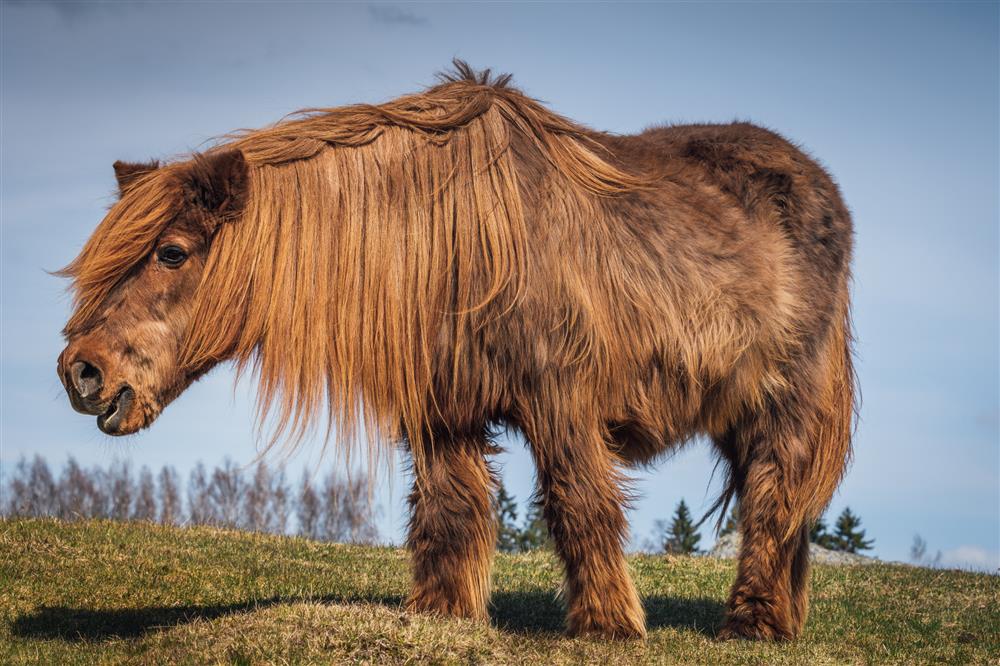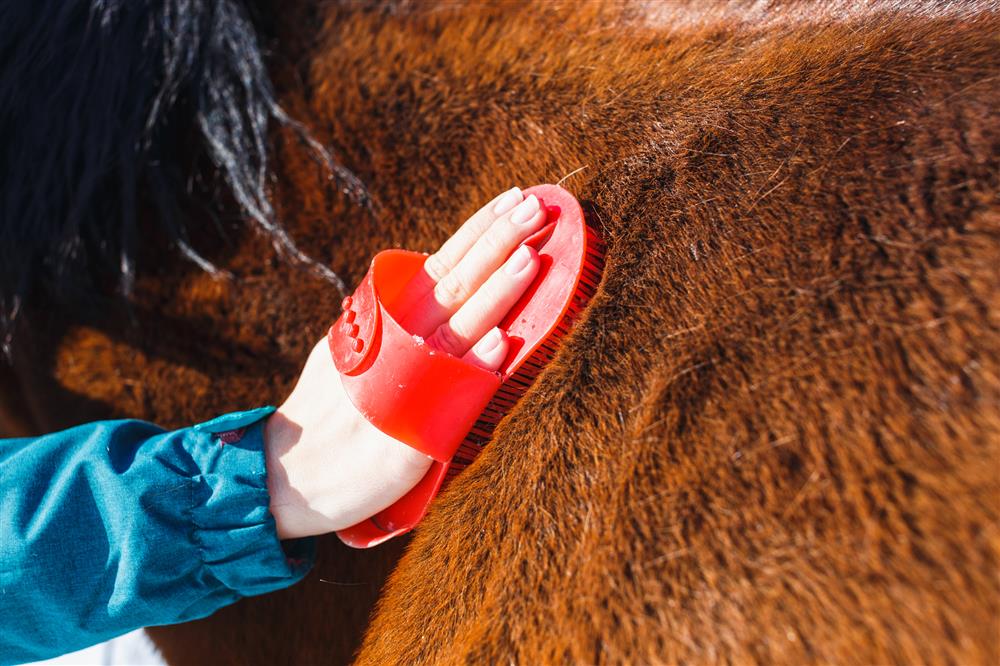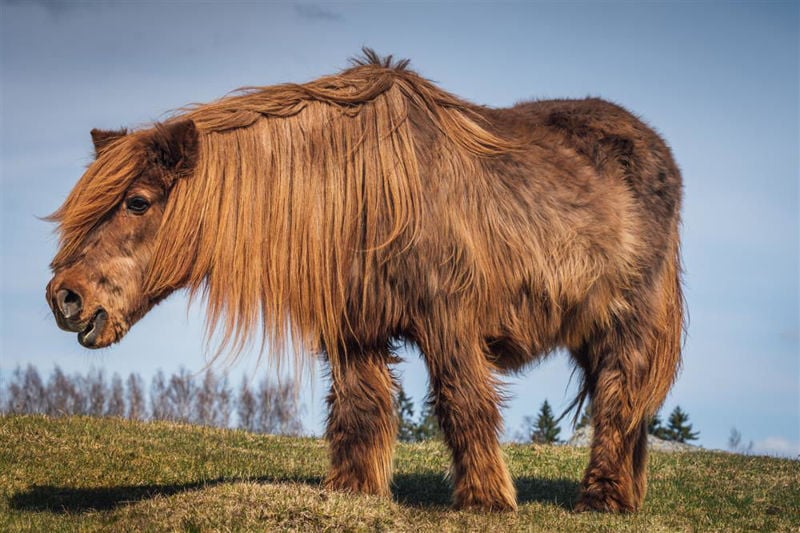Assistance for those horses that struggle to shed their thick winter coat
Although temperatures may still be fairly low, longer days signal that spring is on its way.
Day length is the main trigger for many seasonally related processes in the horse’s body, with changes in coat being one of these processes. An increased period of daylight triggers secretion of hormones within the horse’s body that induce moulting and cause what seems like the never-ending loose hairs, and need for grooming, we all associate with spring. This response to longer days is why our horses and ponies will often start moulting even when temperatures remain relatively low.

Unfortunately, some horses and ponies do not respond to this seasonal trigger and retain their long, thick winter coat. This thick coat can remain all over the body or be more evident on just the legs.
Such equids usually have hormone imbalances that also lead to a thicker winter coat being grown in the first place, making the slow moulting process even more frustrating as they can look scruffy compared to others who develop a sleek summer coat.
Such hormone imbalances can also make animals more susceptible to developing areas of fatty deposits known as fat pads, whilst also struggling to maintain overall body condition. Increased drinking, urination and susceptibility to skin conditions, respiratory issues, insulin resistance and bouts of laminitis, are also associated with these hormone imbalances.

Keeping these horses healthy…
Management is key to keeping these horses and ponies healthy. Feeding a low starch (less than 10% starch and sugar feeds), high fibre diet, and controlling grass intake, reduces the negative effects of insulin resistance and the potential for laminitis to develop.

For any advice or questions you may have, please don't hesitate to reach out to our expert nutrition team. You can call 0800 585525 Monday-Friday 8:30am-5:00pm. Email [email protected], or send us a DM on social media.


